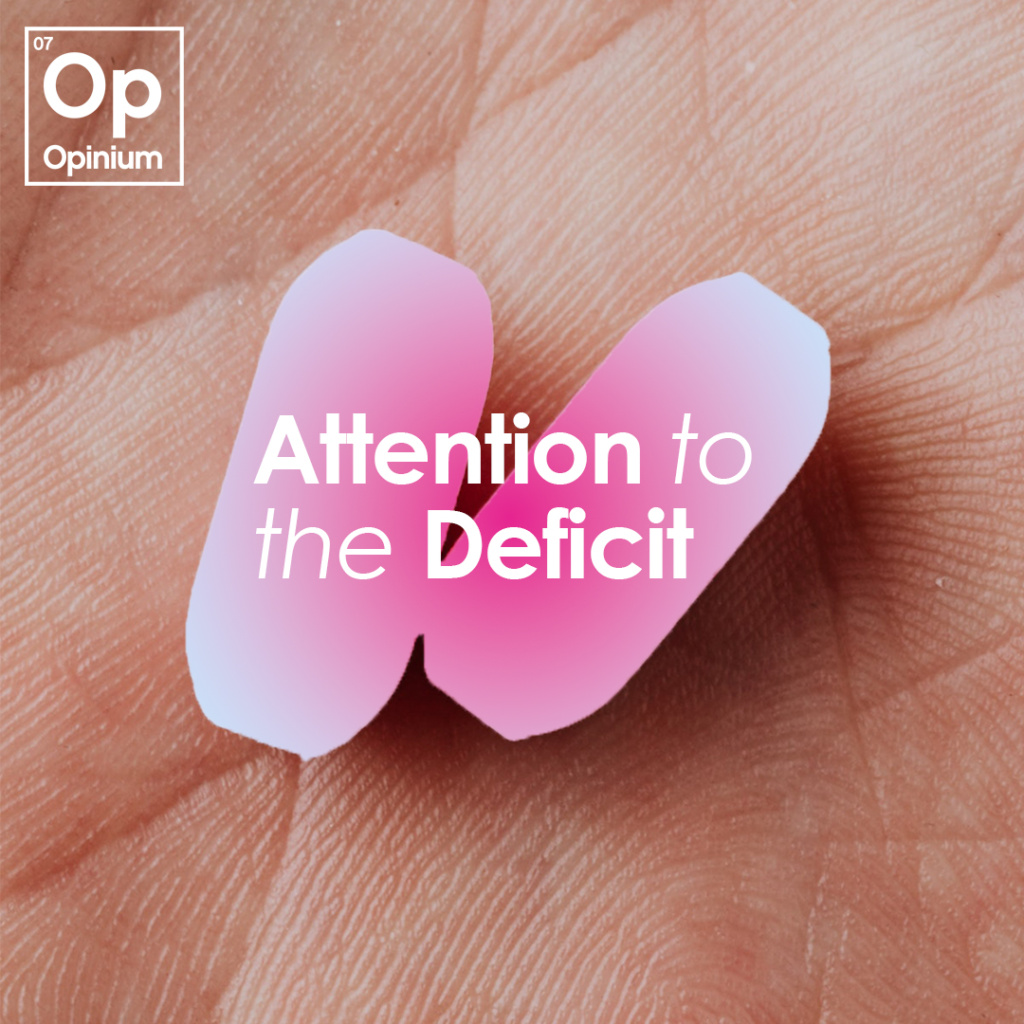Attention to the Deficit
Imagine if you were stripped of all access to electricity with no idea of when it would return. Not only this, but you are expected to carry on with your day-to-day life while your peers remain unaffected. You’re at a major disadvantage and you’ve got to scramble for a solution before you fall behind. This is what an estimated 1.5million people are currently facing in the UK. Continuing with day-to-day life becomes significantly more difficult when you no longer have access to a vital tool.

Towards the end of September, the NHS and the Department of Health and Social Care released a National Patient Safety Alert declaring a nation-wide shortage of medication used to treat Attention-Deficit Hyperactivity Disorder (ADHD). Known as Methylphenidate, the drug is used to stimulate the brain and help those with ADHD maintain better focus throughout the day, preventing them from being easily distracted. The shortage, caused by simultaneous supply-chain faults and increase in demand, has left thousands of UK adults and children, who have the disorder, unable to access this vital tool.
Now a few weeks on from the National Patient Safety Alert, Opinium have conducted a study among 2,000 UK adults to measure the nation’s awareness of this on-going issue and get an insight into how those with ADHD are affected by the shortage.
Who is affected?
Results of the research suggest adults with diagnosed ADHD make up 3% of the UK population, with a further 7% believing they have undiagnosed ADHD. Of those with a confirmed diagnosis, almost four out of five (78%) agree that the shortage has had a noticeable impact on their daily life and executive functioning. Without necessary treatment, typical ADHD symptoms such as impulsivity, disorganisation, and an inability to focus could become significantly harder to manage. Consequently, this could have negative impacts on work performance, relationships, and mental health.
What are the impacts?
Almost one in three respondents with ADHD (29%) have tried to ask multiple pharmacies if they have the medication in stock, due to it not being available from their designated supplier. Perhaps without success as the study reveals that having to adapt to life without access to their usual prescriptions has caused those who are affected to take alternative measures: 42% have chosen to ration their remaining medication supply, which could look like skipping days or taking smaller doses. Meanwhile 13% have admitted to borrowing from a friend which goes against UK legislation.
Others have opted for a more holistic approach as 25% of respondents reveal they have taken supplements in place of their medication. There are a variety of supplements on the market that are advertised to boost concentration, for example, Lion’s Mane mushroom and Magnesium. Similarly, the results reveal that if other methods were available, 4 out of 5 respondents agree they would be interested in exploring them. This suggests that there is high demand for effective alternatives to medication, for those with ADHD, which could prevent disruption and frustration if shortages where to occur in the future.
How can we help?
It could be argued that an increase in awareness would encourage a brighter future for those with ADHD: when asked, an overwhelming two in three (66%) of the UK population were unaware of the current medication shortage. A similar amount, 64%, believe there should be a greater awareness about ADHD in the UK and how it affects those who are diagnosed. Additionally, two thirds of the UK population (65%) believe that more support and accommodations should be available in the workplace for those who live with the disorder. Overall, the results suggest that despite not being completely familiar, approximately two thirds of the population would be in support of learning more and adopting extra accommodations for those who live with the disorder.
From what the opinions of the population imply, an increase in advocacy for ADHD awareness, perhaps through education and media exposure, could spark positive conversations on how best to move forward from this issue. Furthermore, it could be deciphered that improved care and a wider variety of treatments, for those with ADHD, would relieve pressure on the supply chain, prevent future disruption and ensure that no one has to struggle without their vital tools.
Written by Anna Day, Junior Marketing and Business Development Executive.




